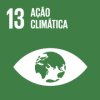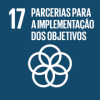ULusófona leads initiative in partnership with five countries to map the concentration of macro and microplastics in coastal and ocean areas
Sustainable Development Goals (SDG)




The European Free LitterAT Project, funded by the Interreg Atlantic Programme of the European Commission, brings together environmental experts from five countries - Portugal, Spain, France, Ireland, and the United Kingdom (the latter as an associate) - with the main objective of investigating the dispersion of plastics in the oceans and finding solutions to this growing problem. Focusing on the presence of macro and microplastics in coastal and oceanic areas, the project aims to understand the impact of this waste and propose strategies to mitigate the damage to the marine environment.
Coordinated by the Centro Tecnológico del Mar, Spain (CETMAR), the project involves the participation of Universidade Lusófona, which leads one of the four Work Packages (WP) dedicated to analysing the concentration of plastics in the waters of the Atlantic. According to researcher Hilda de Pablo, a lecturer at the Faculty of Engineering at Lusófona University and an expert in Oceanography, this international collaboration is crucial to addressing a problem that knows no borders: "We are dealing with a global challenge, and only a coordinated response between countries and institutions can bring effective solutions. In addition to scientific research, it is essential that the results reach legislators and influence public policies."
Interreg Atlantic also involves ministries and legislators from the European Union, as well as other public entities, in an effort to transform scientific knowledge into concrete environmental protection measures. Besides mapping the areas most affected by plastic pollution, the project aims to raise awareness among coastal communities and promote greater environmental consciousness.
With the support of innovative tools and a strong scientific foundation, the project aims not only to mitigate the effects of marine pollution but also to ensure that the Atlantic Ocean continues to be a source of life and wealth for future generations. The project reflects a commitment to sustainability and the preservation of natural resources, always focusing on promoting the balance between economic development and environmental protection.
"We believe that by working together, we can create a better future for the people and communities of the Atlantic region," says Hilda de Pablo, emphasising that the union between science and public policies is essential for a healthier and more sustainable ocean.
For more information, please visit the Free LitterAT Project Website
Production
Ana Azevedo
Images/Editing
Cristo Chikale
Acknowledgments
Epal - Empresa Portuguesa das Águas Livres, SA











